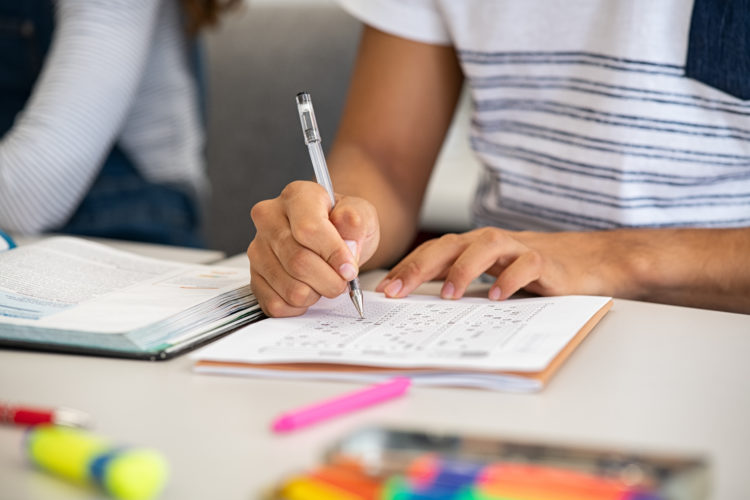Aug. 12, 2022 – New classes, new schedules, and new routines. They’re the kind of changes students and families expect as they enter a new school year.
But for those transitioning from elementary to middle school, from middle school to high school, or into school for the first time as kindergarteners, being a student in a different learning environment can seem intimidating.
To help families ease into this transition, we consulted with three Parent Academy instructors — all district educators – for best practices.
Below are their top tips on how parents can help prepare students for kindergarten, 6th grade, and 9th grade.
Additionally, the following links will take you to the actual courses that were presented this week through the Parent Academy. (You will be required to enter your name and email address before playing each video).
- Up, Up & Away! Tips for a Successful Transition to Kindergarten
- Growing Up: Making a Successful Transition to Middle School
- Navigating Through High School
Tips for rising kindergarteners
Early Childhood Director Sonya McSwain says engaging children in learning activities will help them grow into the skills needed to transition into kindergarten. By turning everyday tasks into teaching moments, McSwain says parents can begin to increase their children’s knowledge in reading, social studies, science, and math.
“While you’re preparing for a grocery store run, or while you’re unpacking groceries, you can practice measuring,” shares McSwain. “The weight of different fruits and vegetables – that’s math.”
Other simple strategies include:
- Practice addition and subtraction through adding and taking away items around the home
- Have students read to you. If they’re not yet reading, encourage them to use the beginning letters in each word and pictures as cues
- Practice reading and oral skills by having children read and describe signs they see while driving or walking the neighborhood.
- Teach social studies skills by pointing out fire stations and police departments and discussing their roles.
Parents should also be aware that students entering Kindergarten will be assessed. In order to gauge their skills in literacy and math, the state has traditionally required that students be tested within the first 30 days of school.
These tests are administered by computer. As a result, parents are encouraged to work with their children to make sure they know how to use a mouse or keypad.
Tips for rising 6th graders
Encouraging independence and responsibility will be key as students transition from 5th to 6th grade, shares Parent Academy Specialist and middle school parent Ashley VanDenMeiracker.
“One of the biggest things I think we can do is let our kids learn how to be their own advocate, which is a really unnatural feeling for us parents because we’re so used to jumping in and solving problems,” says VanDenMeiracker. “But it’s okay to let them start to let them figure out how to solve problems.”
VanDenMeiracker advises “backing away slowly” – giving students more opportunities for independence and advocacy, while offering support. Other tips include:
- Help your student learn how to navigate FOCUS, ensuring they know how to check their assignments and grades.
- Encourage students to email their teachers if they have questions about homework.
- Help your student with organizational and time management skills. Find a planner or calendar that works for them.
- Work with students to develop study skills. Know when tests are scheduled and create a calendar with dates.
- Help your student overcome social fears by having them join a team, club, or after school group.
VanDenMeiracker also encourages parents to remain connected by setting up a parent FOCUS account, checking their parent portal weekly, scheduling conferences throughout the year, and volunteering.
Tips for rising 9th graders
As students transition from 8th grade into high school, School Counseling Specialist LaConya Conner says prioritizing courses will be key. This is to ensure that students don’t fall behind in meeting the requirements for a standard high school diploma.
“As 9th graders…your schedule is very important,” Conner advises. “You should have at least a Math, an English, and a Science on your schedule.”
In addition to attending 9th grade orientation and visiting your school’s open house, Conner also suggests getting to know your student’s counselor, and scheduling regular teacher conferences — and not waiting until there’s a problem to do so.
“Ask for help if you need it,” encourages Conner. “Don’t wait until it becomes a problem. When you start to see signs, ask.”
Other suggested tasks for 9th graders include:
- Learn more about Bright Futures and eligibility
- Participate in extracurricular activities and track community service hours (required for Bright Futures)
- Register for, and take the PSAT 8/9 at your school
- Find out eligibility requirements for sports
- Make sure your student meets with his or her counselor to develop next year’s schedule
- Start thinking about life after high school by exploring career and college opportunities, as well as opportunities to volunteer or intern
“This is a time for self-awareness and finding out different things about yourself,” says Conner. “Have fun and enjoy it!”
Check out the slate of Parent Academy courses available in August to hear more great tips for families.









1 Comment
Comments are closed.